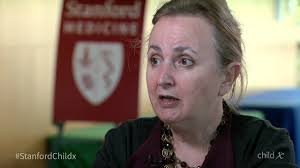John Nwokocha, Editor, and Juliet Jacob in Abuja, Nigeria
Stanford University’s SPARK Translational Research Programme has announced plans to tackle critical health challenges in Nigeria and across Africa, with a focus on developing treatments suited to African populations.
SPARK Global also disclosed it is targeting to address the drug and pharmaceutical gaps towards improving the health sector of Nigeria, among other plans to be unveiled at the upcoming conference in Abuja, Nigeria.
Earlier, Africa Health Report (AHR) reports that the February 2026, also aims to empower local scientists to create solutions for diseases that remain neglected despite their high burden on the continent.
Speaking with AHR editorial team in an exclusive interview, Founder and Co-Director of SPARK and a Professor of Chemical and Systems Biology at Stanford, Professor Daria Mochly-Rosen,
described the move as a “reverse approach,” stressing that while the West often sends advice and money for infectious diseases like malaria, Africans also die from conditions such as diabetes, stroke, hypertension, and Alzheimer’s. “Why always focus only on malaria?” she queried.
Professor Mochly-Rosen highlighted the urgent need to develop hypertension drugs effective in African populations, noting that many treatments developed in the West do not work optimally for people of African descent.
The effort to empower local researchers and scientists is driven towards building a strong pharmaceutical subsector, for manufacturing of effective drugs yet, affordable for the population, in the targeted partnership with the National Institute for Pharmaceutical Research and Development (NIPRD), headed by Dr. Obi Adigwe, as the Director General.
Professor Mochly-Rosen emphasised that the initiative is not about importing expensive Western solutions but equipping Nigerians with tools to address their own health challenges sustainably.
Said she, “Nigeria has people, time, and will. It’s not about a lot of money but strong determination”.
Professor Mochly-Rosen cited research showing that anti-HIV drugs like Efavirenz are metabolised differently among Africans, leading to either poor treatment outcomes or severe side effects such as psychosis and nightmares, which often force patients to stop medication.
The professor of chemical and systems biology emphasised that the programme will train Nigerian scientists to develop or reposition existing drugs for local needs, including low-cost preventive or therapeutic measures for viral infections. She said, for example, SPARK scientists created an antibody-based nasal drop derived from chicken eggs to prevent COVID-19 transmission. This solution, developed under $2 million, demonstrated how locally produced, low-cost treatments can address national health problems quickly.
Beyond viral prevention, SPARK aims to improve maternal and child health by supporting local solutions for conditions such as preeclampsia.
According to her, “a colleague believes could also treat adult hypertension cheaply and effectively if properly tested in African populations”.
She went on to say the programme will teach Nigerian scientists how to run clinical trials and navigate regulatory approvals to bring such innovations to market.
It would be recalled that AHR had reported exclusively that Stanford varsity and the SPARK Global Founder have unfolded how the programme would position Africa for cancer treatment breakthroughs.
Hear her, “Cancer will be managed better if we understand the unique properties of each type and stop treating it as one disease.”
Full of optimism that science will find the needed solutions, Mochly-Rosen highlighted that SPARK’s model has transformed countries like Taiwan, which established over 200 biotech companies within a decade of adopting the programme.
She said Nigeria, with its intellectual capital, could achieve similar feats with the right tools, training, and local ownership of research.
“We hope to spend a big part of a week providing tools, not to do anything ourselves, but really to use local ideas that are plentiful and address unmet needs the people in Nigeria consider important,” she said.
According to her, building local solutions remains the priority, adding that the programme is not about a lot of money but strong determination.



